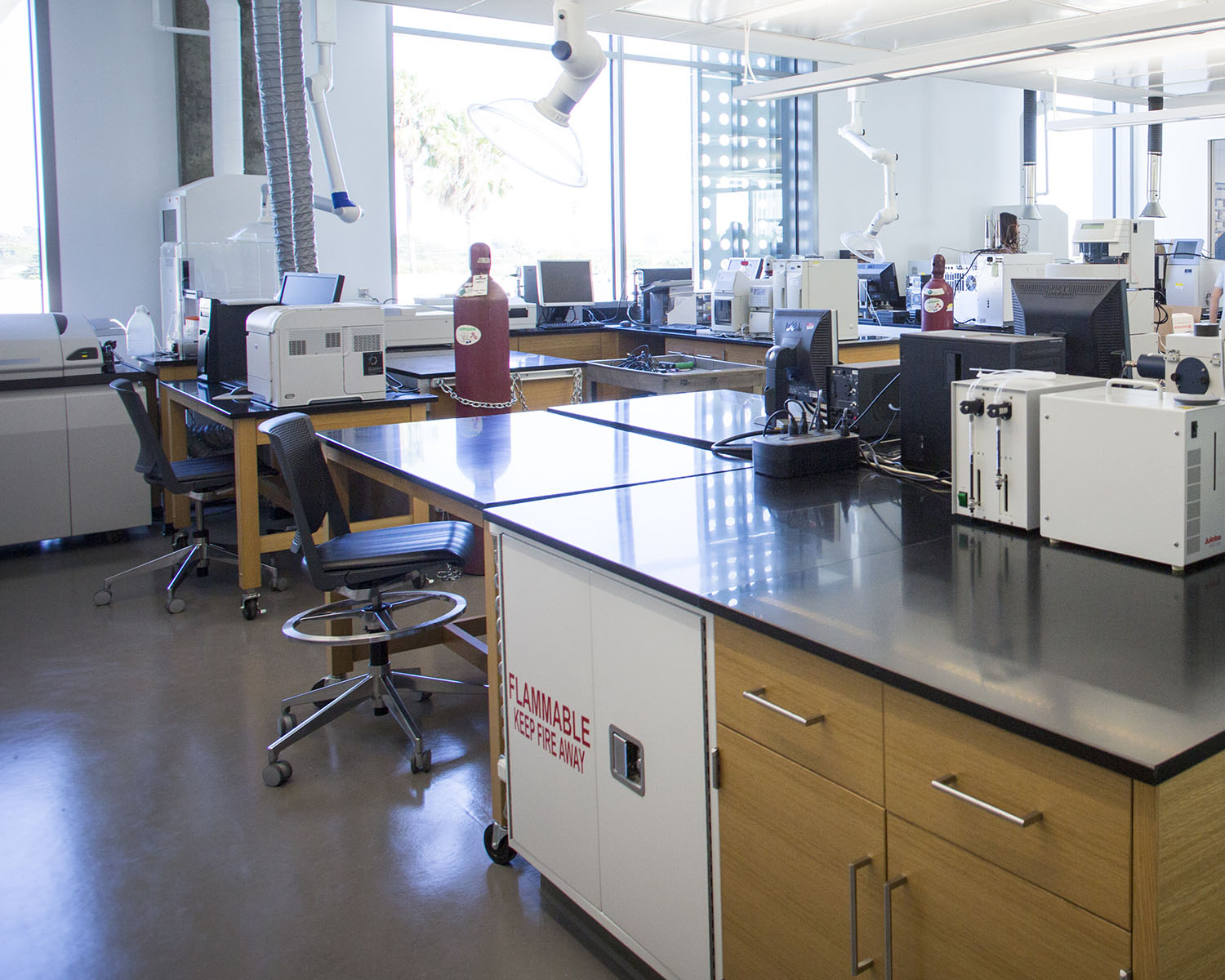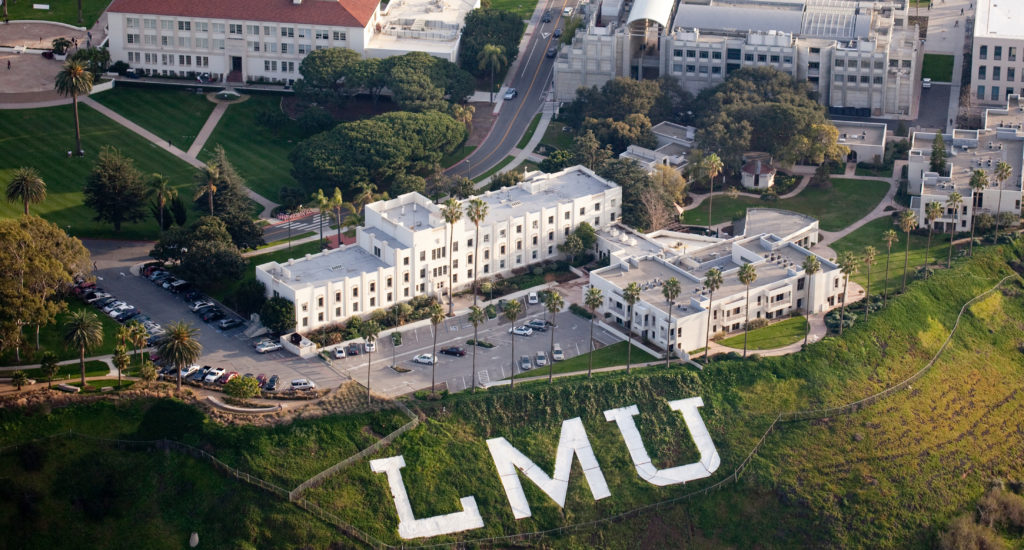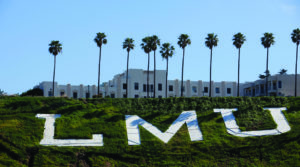FRANK R. SEAVER COLLEGE OF SCIENCE AND ENGINEERING | A Loyola Marymount University assistant professor has secured a $50,000 grant from Research Corporation for Science Advancement to identify drug candidates that could stop the coronavirus, the pandemic-associated virus that causes COVID-19, a disease that’s killed more than 400,000 people, including 110,000 in the U.S.
Kathryn Mouzakis of the LMU Frank R. Seaver College of Science and Engineering is leading an elite, nationwide team of researchers whose combined expertise will allow them to rapidly identify drug candidates that target a specific 3D shape in the coronavirus’ genome. RCSA’s COVID-19 Initiative, announced and implemented in April 2020, provided immediate funding for highly promising research projects that directly impact the current or future pandemics.
“Dr. Mouzakis’ work to inhibit viral replication of SARS-CoV-2 is critical in addressing the current and future viral pandemics,” said Kathleen Weaver, associate provost for research, professional development, and online learning. “Congratulations to her and her team of top-tier researchers.”
Mouzakis, an assistant professor of biochemistry who joined LMU in 2018 from Fort Lewis College, where she won the new faculty teaching award, is a 2017 Cottrell Scholar awardee from RCSA. Her team members are Amanda Hargrove, an associate professor of chemistry and biochemistry at Duke, a fellow 2017 Cottrell Scholar, and co-investigator receiving her own $50,000 RCSA award for this research; and collaborators Victoria D’Souza, professor of molecular and cellular biology at Harvard, Gary Brewer, professor of biochemistry and molecular biology at Rutgers, and Mei-Ling Li, a research assistant professor at Rutgers.
“I am thrilled to receive this funding from RCSA,” Mouzakis said. “In addition to doing important research that may one day alleviate disease, this is a new and exciting direction for my research lab. Our results will allow our team of investigators to be competitive for future long-term funding from federal sources such as the National Institute of Allergy and Infectious Diseases. In the next year, I plan to pursue a couple different funding opportunities from National Institutes of Health. I am highly confident that this funding and our subsequent publications will substantially strengthen those applications.”
The hypothesis of their work is that drug-like small molecules can selectively bind and modify the function of a viral RNA structure in ways that are detrimental to the virus lifecycle. These drug-like small molecules could help someone who is already infected by limiting the course of the disease and reducing transmission.
The specific RNA structure the team is targeting, its frameshift site pseudoknot, acts in an early step in infection and may represent an Achilles’ heel for the virus. Mouzakis will contribute to this research by assessing if, and to what extent, lead compounds, identified through research efforts in Hargrove’s lab, impact the functionality of the viral frameshift site. Small molecules that selectively and significantly impact the frameshift site function will be further evaluated for their ability to stop coronavirus replication by Brewer and Li.
“Even under the current status of extended, reduced operations, LMU wants to allow COVID-19/SARS-CoV-2 research that has the potential to mitigate the pandemic’s spread,” Mouzakis said. “Thanks to the fantastic support of my chair, associate deans, dean, the Office for Research and Sponsored Projects, and the Provost’s Office, I’ll be able to start in-lab on-campus experiments on June 15, which is the start date for my award.” She added that the work will be conducted in accordance with LMU and the L.A. Department of Public Health policies.
“While I won’t be able to involve my students directly in the research over the summer because of our campus restrictions, I’m excited to work with them on this project when we go back to campus in the fall,” Mouzakis said.




